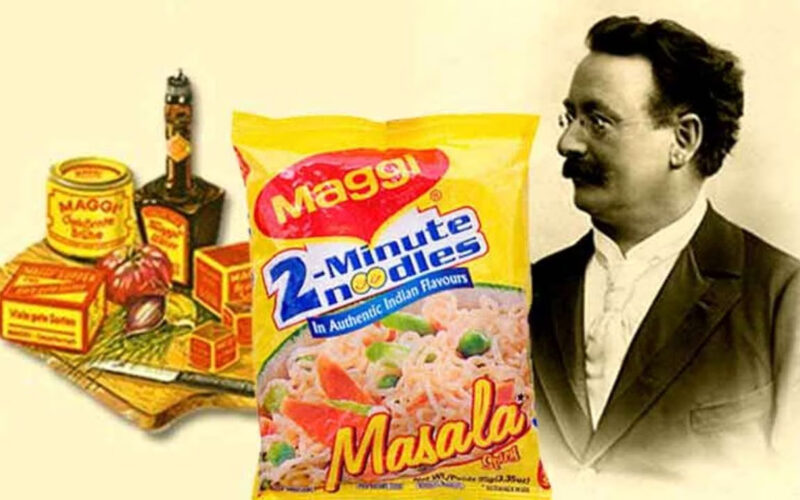Maggi Noodles, the iconic instant noodle brand, has been a staple in kitchens worldwide for decades. Known for its quick preparation and irresistible taste, Maggi has become synonymous with convenience and comfort.
Introduced by Swiss entrepreneur Julius Maggi in the late 19th century, the brand initially focused on soups and bouillons. However, it was the launch of Maggi’s instant noodles in the mid-20th century that truly revolutionized mealtime. With its signature masala flavor and two-minute cooking time, Maggi Noodles quickly won hearts across the globe, especially in countries like India, where it became a cultural phenomenon.
From late-night cravings to quick lunches, Maggi Noodles have transcended generations, becoming more than just a food item, it’s an emotion. Whether you call it “Maggi” or “Maggie,” there’s no denying the brand’s enduring legacy as the ultimate comfort food.
Origin of the Name “Maggi”
- Founder: The Maggi brand was created by Julius Maggi, a Swiss entrepreneur, in the late 19th century (1884).
- Purpose: Julius Maggi was inspired to create a product that would provide quick, nutritious meals for working-class families during the Industrial Revolution.
- Name: The brand was named after its founder, Julius Maggi, and it became synonymous with convenience and innovation in food products.
How Maggi Noodles Became Popular
- Maggi initially focused on soups and bouillons, but it expanded into instant noodles in the mid-20th century.
- The noodles gained massive popularity in countries like India, where they were introduced in the 1980s. The brand became a household name due to its affordability, quick preparation, and unique taste.
Why People Call It “Maggie” Instead of “Maggi”
- The misspelling “Maggie” is likely due to:
- Phonetic Pronunciation: In many languages, the double “g” in “Maggi” is pronounced like a hard “g,” which can sound like “Maggie” or “Maggie.”
- Cultural Adaptation: In some regions, people may have adapted the name to make it easier to pronounce or remember.
- Typographical Errors: Over time, the misspelling became common, especially in informal contexts.
Fun Fact
- Despite the misspelling, Maggi remains one of the most recognized and beloved brands in the world, especially for its instant noodles.

